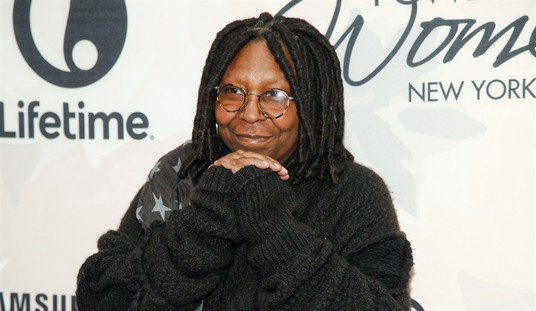Juan Williams’s recent firing from NPR has occasioned yet another in the perennial series of arguments about the public radio network and whether it should or should not continue to be government funded. The debate so far, it must be admitted, has not been an edifying one, consisting mostly of the regurgitation of clichés.
At The Daily Beast, itself a formidable organ of the liberal establishment, Peter Beinart provided an excellent example of this, writing that “NPR is elitist, and it’s a good thing too” before trotting out almost every cliché NPR’s defenders have ever employed in defense of the network. “The people who run the station,” he writes, “believe that Americans should know more about what is happening in China and less about what is happening to Britney Spears, which in today’s media makes them downright subversive.” As proof of this, Beinart claims that “NPR now has 17 foreign bureaus compared to four for CBS,” and “NPR devotes 21 percent of its airtime to international news compared to 1 percent for commercial talk radio.”
Needless to say, these are not particularly helpful arguments. One is little more than openly acknowledged snobbery, and the other appears to make the bizarre claim that more coverage by definition equals better coverage, as if a patient were more likely to survive surgery with ten doctors in the operating room instead of one. Given the ready availability online of translated foreign media, moreover, one wonders why those interested would require their news filtered through an American radio network in the first place.
Beinart does, however, do us the service of reiterating NPR’s most beloved talking point: “NPR doesn’t get a lot of public money.” This endlessly repeated assertion is apparently so important that it appears on NPR’s own website, where it features prominently in the ombudsman’s frequently asked questions page. “NPR receives no direct funding from the federal government,” the network states. This begs the question, of course, of why — if the public money it receives is so minor — NPR and its defenders fight so ferociously to retain it.
The answer appears to be hiding in plain sight, in the networks admission that:
Approximately half of NPR’s funding comes from NPR member stations. In an average year, NPR funds about 45 percent of its operations with membership dues and program fees from member stations.
These member stations are, in turn, subsidized by local, state, and federal tax dollars. The manner in which NPR receives public funding appears, therefore, to be akin to that long-practiced method which in other contexts is known as “money laundering.” Indeed, one imagines there are drug cartels that run more honest operations.
None of this, however, makes or will make much difference to NPR’s core audience, and it is not too difficult to understand why. Put simply, NPR is for coastal liberals what Rush Limbaugh is for heartland conservatives: a means of relating to the world from within the confines of a specific subculture. The difference, of course, is that Limbaugh’s admirers do not force others to pay for it.
Nor, I imagine, are Limbaugh’s listeners laboring under the same illusion as NPR’s. Most of them probably understand that Limbaugh is giving opinions based on his political point of view, which is, to say the least, well known to his listeners. NPR’s listeners, on the other hand, are quite convinced that they are receiving nothing less than the pure, unvarnished, objective truth from the network. They believe themselves to be smart and informed, and thus the network they love must also be, perhaps by definition, smart and informative.
As far as I have been able to discern from my own, admittedly subjective, encounters with the network, this is largely a convenient illusion. Put simply, NPR’s reputation seems based largely on aesthetic considerations. Its personalities are articulate and employ a more extensive vocabulary than commercial radio; its programs are professionally produced, with a slickness that conservative media cannot match; and its reporters are generally skilled at sounding calm and objective, even when they manifestly are not. The more one begins to delve into the substance of NPR’s programming, however, the more one senses that the network is neither particularly smart nor particularly informative.
Listening to NPR during a recent ten-day trip to the United States, I was struck by how repetitive, unimaginative, and incurious the network seemed to be. Most of its foreign coverage was provided by the BBC, and generally consisted of what is colloquially called “disaster porn.” Shows like Talk of the Nation largely regurgitated liberal talking points at great length, but not in great depth. The most striking episode of the interview show On Point was ostensibly devoted to understanding the appeal of Glenn Beck, but consisted almost entirely of a monologue by reporter Dana Milbank, who has just published a book attacking Beck from a liberal standpoint. Neither Beck nor a single one of his supporters appeared on the show, an omission that appeared to be motivated more by journalistic laziness and a lack of intellectual curiosity than anything else.
As for NPR’s more entertainment-oriented programming, the situation is frankly dire. To pick two examples, This American Life is an unlistenable tribute to narcissism and irritating nasal voices, and the game show Wait Wait Don’t Tell Me is hosted by a Jack Benny imitator of, it must be said, dubious talents. Even less comprehensible than this is the presence of Diane Rehm, an interviewer who, as the result of a tragic speech disorder, is barely intelligible. One of the greatest dangers of public media is, of course, its tendency toward nepotism and cronyism, and one imagines that the less competent aspects of NPR are largely a result of this.
More to the point, neither the means and extent of NPR’s public funding nor the quality of its programming constitute a convincing argument for why American citizens ought to be coerced into paying for it. Indeed, the real reason why NPR’s partisans believe the network deserves taxpayer dollars has yet to be voiced in the current debate, and likely never will be, largely because they themselves are largely unaware of it.
The truth is, that for its regular listeners, NPR is not simply a radio network. For members of the specific subculture it serves — mostly white, middle to upper-middle class, college educated, politically liberal residents of the coastal regions of the United States — NPR is something approaching a religious icon. They relate to it with the same intense emotions with which others regard images of the Virgin Mary or the sanctified structures of Mecca and Jerusalem, and they will defend it just as passionately. Indeed, Beinart’s remark about Britney Spears is not a coincidence. In a country in which this subculture sees itself as more and more besieged by ignorance, racism, close-mindedness, and commercialism, NPR constitutes essentially the only form of media they can relate to without alienation or shame.
The extent to which NPR dominates the lives of some of its listeners is quite striking. One is put in mind of an anecdote from linguist and Democratic Party media consultant George Lakoff’s book Don’t Think of an Elephant. When asked whether he has heard of conservative activist James Dobson, Lakoff asks, “Is he on NPR?” indicating, albeit inadvertently, that he essentially listens to nothing else. Lakoff, I think, is not alone.
Of course, every subculture has its objects of affection. Punks and hip-hop fans have their music, Trekkies have their TV shows and movies, hipsters have mumblecore, etc. The difference, of course, is that unlike NPR, none of these are funded largely by coercive means. And this says something, I think, about the liberal mentality. Put simply, liberals constitute the one subculture in the United States that consistently and often willfully mistakes its specific and particular preferences for universal truths.
The simple truth that liking something does not give you the right to force others to buy it for you is lost on a subculture that sees its likes and dislikes as moral imperatives that impose benefits and obligations on society as a whole. NPR is only one, relatively minor, expression of this, but it is a telling one, if only because, for those outside the liberal subculture, it is so obvious and glaring. The blatant hypocrisy and bad faith with which NPR has acted in regard to Juan Williams is, in microcosm, the hypocrisy and bad faith with which it acts in regard to all American taxpayers. And it should be obvious to all, even those who lack the most rudimentary capacity for self-reflection, that to act in such a manner toward those who are, in fact, paying your salary, is neither a smart nor an informed thing to do.









Join the conversation as a VIP Member